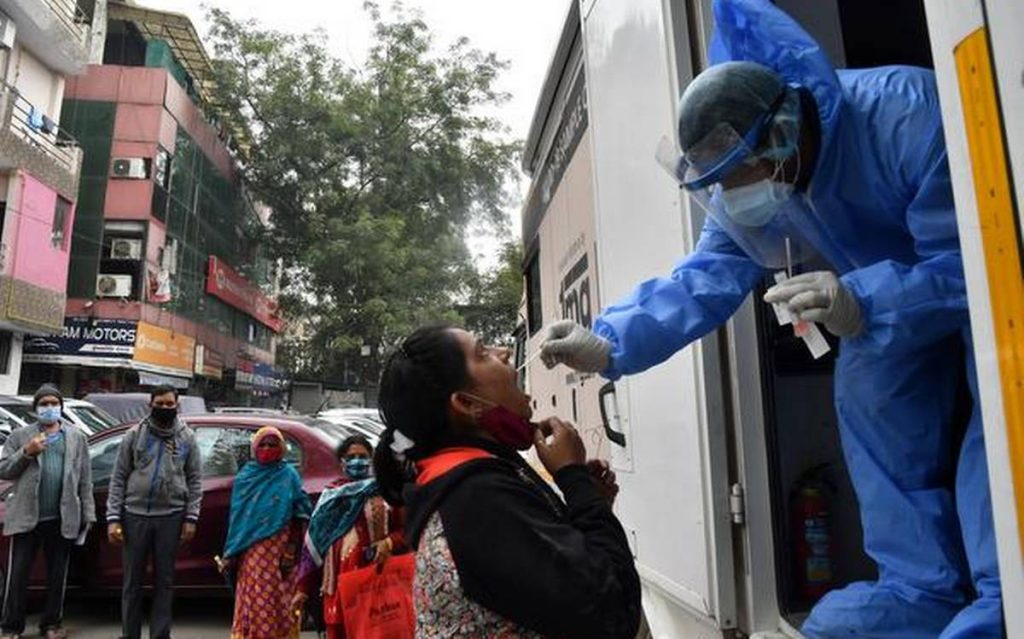With the onset of the Covid-19 pandemic worldwide, there is a huge demand for the diagnosis of the disease, especially in the early stage, to mitigate the spread and start an effective treatment of the potential carriers of coronavirus. Also, the quicker the results, the better, given the severity and communicability of the disease. However, it brought a lot of challenges for the medical fraternity to come up with a standard reference to make a definite diagnosis of covid-19 patients.
It was seen that nucleic acid detection-based procedures are more reliable in detecting the virus. And soon after, a reverse transcriptase-polymerase chain reaction (RT PCR), one of the many nucleic acid tests, becomes a standardized test for covid-19 detection across the globe. This test is also attributed to rapid results, high specificity, and sensitivity, making it appealing to the medical industry.
The only challenge in the results of the RT PCR test is the risk of getting false-negative and false-positive results.
What are False-negative & False-positive Results?
False-negative is a result that shows no presence of a pathogen or virus. However, in reality, it actually is present, whether in large numbers or small.
False-positive is a result that shows the pathogen or virus is present when it actually is not present.
Laboratories worldwide have found a good number of false-negative reports. It goes without saying how much it can affect the health progression of patients and the collective efforts of the health industry to tackle the spread.
In the pursuit to overcome and mitigate the high number of False-negative results and come at a more comprehensive and accurate evaluation, molecular tests began along with the nucleic test. These molecular tests focused on detecting the virus-specific antibodies and cellular immune response to low viral load or even a marginal coronavirus attack in the body. It has made the effectiveness of diagnosis better. However, there are still factors that impact the sensitivity of RT PCR tests and need to be followed carefully.
Let us look at 3 main factors affecting the sensitivity and specificity of RT PCR tests.
Choice of PCR kits
Through commercial PCR kits, the detection of SARS-Cov-2 is carried out. The World Health Organisation has laid proper guidelines to follow when using the RT PCR kits. As there is a range of diagnostic kits available in the market today, these are assumed to bring varied variations in results. Best quality PCR kits are pivotal for any laboratory as they contain essential and different reagents. Easy use, quality, and storage conditions of the reagents and associated cost are a few key aspects to be considered when it comes to PCR kits.
Repetitive Analysis
Another crucial aspect in getting the best results in the RT PCR test is quality analysis. The results of RT PCR tests must be cautiously interpreted, and if needed, should be repeatedly recorded. Due to the pandemic, there is an increased need for innumerable rapid results. However, the quality and accuracy of the reports must not be compromised to bring rapid results. With the emergence and development of the nature of the virus, WHO, FDA, and Eu unions keep issuing new guidelines to laboratories to be able to remain authentic, accurate, and efficient in results. Thus, thorough analysis and quality control at diagnostic centres are essential factors that affect the RT PCR results.
Extraction Methods
When it comes to rapid testing with accurate results, the use of extraction methods by laboratories is vital. Traditional chemical extraction is a long process that uses many reagents, which can make them unavailable for a shorter period, thus affecting the RT PCR tests at large. Therefore, alternative extraction methods were tried, like direct heating without additives, the addition of formamide-EDTA buffer, and RNAsnapTM buffer. However, the cycle threshold (Ct) value was observed to increase in alternate methods compared to the standard one. It, in turn, resulted in degrading the sensitivity of RT PCT test results. Hence, the extraction of nucleic acids must be optimized to ensure the overall specificity and sensitivity of the determining methods.
Together, molecular and nucleic acid tests can improve the diagnosis, especially to screen the patients with no symptoms, and reduce the false-negative scenarios of premorbid patients or false recovered patients.
There are many factors that play roles in affecting the sensitivity and specificity of the RT PCR test in Delhi, Jaipur, or any other city across the nation. Also, the role of laboratories and quality diagnostic centers are significant as better the diagnosis of any ailment, more the chances of controlling and eliminating the spread.
SpiceHeath, for instance, is one of the leading diagnostic centers in India, providing quality and affordable RT PCR tests in Delhi, Gurgaon, and many other cities in India. The team follows proper sampling procedures, good laboratory practice standards, real-time covid-19 protocol, and uses top quality extracting procedure along with the best RT PCR kits. Make an online booking of SpiceHealth’s RT PCR test in Delhi, or any other state for your family today!

